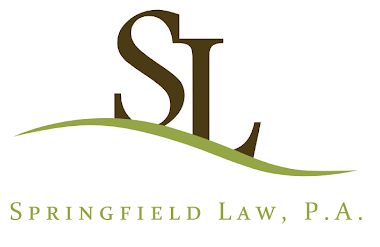By Jennifer B. Springfield In 1998 due to the mounting realization that a twenty-year planning period was too short and the existing planning tools were too constraining, in a fast growing state, to adequately protect natural systems and avoid piece-meal planning, the Florida Legislature created section 163.3245, Florida Statutes (FS), which established an experimental pilot … Continue reading “Florida’s Sector Planning Process”
Environmental
RIPARIAN WATER RIGHTS
You’ve probably heard the term and know that it relates to water, but what precisely are “riparian rights,” who has these rights, and what is the nature of these rights? Riparian rights are those rights which are incident to lands that border upon “navigable waters.” Riparian rights include such things as the right to ingress … Continue reading “RIPARIAN WATER RIGHTS”
HYDRAULIC FRACTURING: LAWS AND LEGAL MANEUVERS
By Jennifer B. Springfield What is hydraulic fracturing, aka fracking, or high-pressure well stimulation? A simple definition is the extraction of natural gas and oil deposits (difficult to access because they are trapped within tight pores of rocks deep underground) by injecting water, sand and chemicals into drilled holes or wells which serves to fracture … Continue reading “HYDRAULIC FRACTURING: LAWS AND LEGAL MANEUVERS”
Florida Eminent Domain Law: Condemnation Procedure
FLORIDA EMINENT DOMAIN LAW Condemnation Procedure By Jennifer B. Springfield and Alexander Boswell-Ebersole The government exercises its eminent domain authority by civil action, and the procedure for the exercise of this authority is generally called either a taking or a condemnation action. In addition to the substantive law of eminent domain in Florida, Chapters 73 … Continue reading “Florida Eminent Domain Law: Condemnation Procedure”
THE ENVIRONMENTAL PROTECTION ACT:”Citizen Suits” for the Environment
THE ENVIRONMENTAL PROTECTION ACT: “Citizen Suits” for the Environment By Jennifer B. Springfield and Alexander Boswell-Ebersole In 1971, the Florida Legislature passed the Florida Environmental Protection Act. This Act, codified as section 403.412, Florida Statutes, authorizes Florida citizens, subdivisions and municipalities of the state, as well as the Department of Legal Affairs, as well as … Continue reading “THE ENVIRONMENTAL PROTECTION ACT:”Citizen Suits” for the Environment”
Florida Eminent Domain Law: “Public Purpose” and “Just Compensation” Requirements
FLORIDA EMINENT DOMAIN LAW “Public Purpose” and “Just Compensation” Requirements By Jennifer B. Springfield and Alexander Boswell-Ebersole In Florida, governmental entities may take privately-owned real property for a “public purpose,” provided the owner receives “full compensation.” Under the Florida Constitution, the public purpose and full compensation requirements generally result in greater protection for private landowners … Continue reading “Florida Eminent Domain Law: “Public Purpose” and “Just Compensation” Requirements”
Eminent Domian Law in Florida: An Overview
Eminent Domain Law in Florida: An Overview By Jennifer B. Springfield and Alexander Boswell-Ebersole As an “inherent attribute of sovereignty,” the government is empowered to “take” privately owned land. Such authority, known as “eminent domain” or “condemnation,” is restricted in several ways by both the United States and Florida constitutions. The government may take private … Continue reading “Eminent Domian Law in Florida: An Overview”
Restrictive Covenants Can Impede Development Plans and Cost Landowners
RESTRICTIVE COVENANTS CAN IMPEDE DEVELOPMENT PLANS AND COST LANDOWNERS By Jennifer B. Springfield In addition to property inspections and verifying applicable land use designations and zoning regulations, anyone who is contemplating the purchase of land for development purposes should conduct a thorough review of the title records prior to purchase and early in the due … Continue reading “Restrictive Covenants Can Impede Development Plans and Cost Landowners”
Quasi Judicial & Quasi-legislative Land Use Decisions
Quasi-Legislative & Quasi-Judicial Local Land Use Decisions By Jennifer B. Springfield and Alexander Boswell-Ebersole The duties of local governing bodies, county and municipal commissions and plan boards, often include making land use decisions. These decisions frequently involve public hearings. When a land use application makes its way to a county or municipal governing body, also … Continue reading “Quasi Judicial & Quasi-legislative Land Use Decisions”
Striving for More Consistent Water-Related Permitting: “CUPcon” and Statewide ERP
The Florida Department of Environmental Protection (DEP) has been heading two efforts to increase the efficiency and statewide consistency of water-related permitting in Florida. These efforts focus on the Consumptive or Water Use Permitting (CUP/WUP) program and the Environmental Resource Permitting (ERP) program. An effort called the Consumptive Use Permitting Consistency Initiative—commonly referred to as … Continue reading “Striving for More Consistent Water-Related Permitting: “CUPcon” and Statewide ERP”

